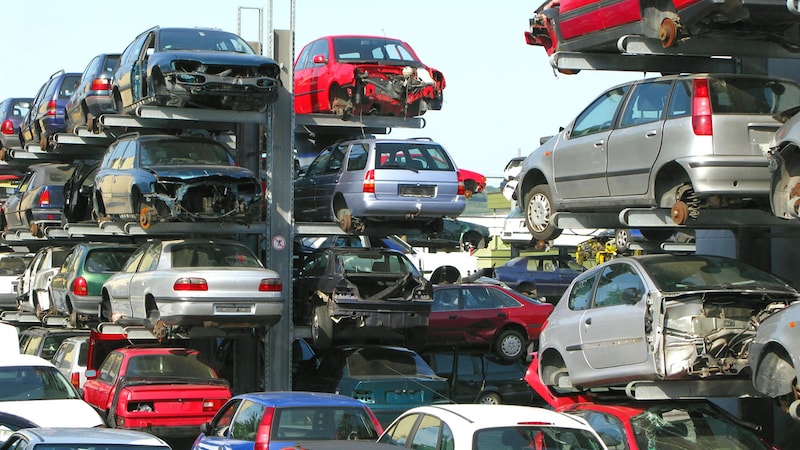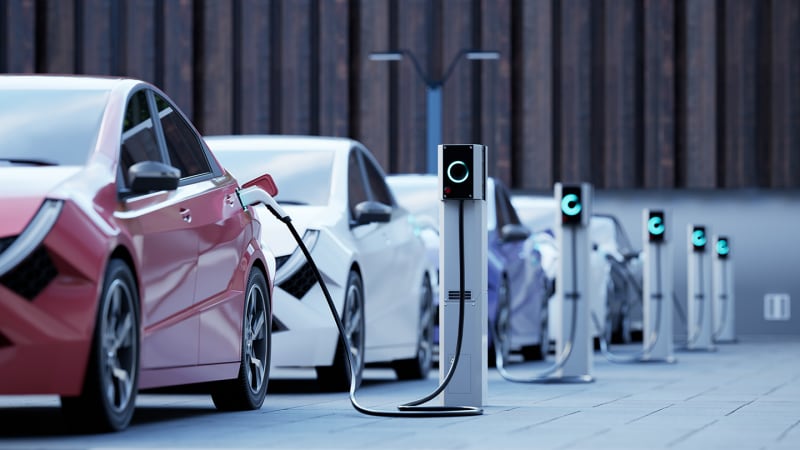How to buy a car from a private seller

In the market for a new car? Use this guide to help you learn more about buying a car from a private seller. Although Chase doesn't offer private party auto loans, we'll cover how to buy a car from a private seller to help determine if this is the right option for you.
How to buy a car from a private seller
The first step to buying a car from a private seller involves researching vehicles that fit your needs and lifestyle. You should determine how much you can afford to spend on a car and set a budget. This is also the time to reach out to potential lenders. Private sellers typically don't offer financing, so you may need to take out a loan unless you have enough cash to pay for the car upfront. Either way, when buying a car from a private seller, it's better to know how you're going to pay for the vehicle before you've locked in on the one you want.
After narrowing down your options, it's time to contact the seller and inquire into the car's history. Ask the seller about any accidents and determine what the car was used for. Was it a work truck taking a daily beating on the job site? Or, was it a "weekend" vehicle that remained idle? You should also find out why the owner is selling the car. You should also check to see if the vehicle has been in any reported accidents through a vehicle history report.
Next, you should ask to meet in a public location for a vehicle test drive and inspection. Take your time examining the vehicle. For obvious reasons, private sellers may not always be motivated to disclose everything wrong with the car. If you rush into the purchase, there's little recourse you can follow if you find an issue later.
Look for rust on the inside and outside of the car and examine the tire tread. Check for tears in the upholstery and dents or scratches on the body. Turn the car on to inspect the electronics, radio, lights and locks. Ask the owner when the battery was last replaced and inspect it for rust.
You should test drive the vehicle for a sense of how things are running under the hood. Keep an ear out for any strange noises that could indicate engine or transmission issues. Pay attention to the steering wheel. If you're struggling to keep the vehicle straight, it could indicate an alignment issue.
Things to consider when buying a car from a private seller
Private sellers are subject to less oversight than car dealerships. This means it's up to you to know which red flags to look out for. When buying a car from a private seller, you should make sure they are the legal owner of the car. Ask to see the title — their name should be listed as the owner. If a financing company or bank is listed as the owner, it means the private seller hasn't paid off the car yet and may not have rights to sell the vehicle.
If the seller ceases payments, the bank is in its right to come after the car. In cases where the private seller claims to be the legal owner despite what the title says, ask for proof in the form of a lien payoff document.
Keep in mind that private sellers have other obligations. Selling a car eats into their free time, which means they may be more willing to settle for your proposed offer. However, a private seller can't finance you. This means you can either pay upfront or take out a loan from the bank. This could be an auto loan or a personal loan. Reach out to your financial institution to see if they provide auto loans for private sales, not all do.
When buying from a dealer, you may be able to cancel the deal even after signing the contract. When you buy from a private seller, they are under no obligation to return your money after the transaction is complete. Also, private sellers are not subject to lemon laws. These laws protect consumers by forcing dealerships to offer reimbursements for defective vehicles. However, these laws vary by state and are usually limited to new car purchases.
Pros and cons of buying from a private seller
Now that you know how to buy a car from a private seller, it's time to determine whether or not you should. Consumers differ in wants and needs which makes it hard to declare an outright superior car buying option. Therefore, it helps to run through the pros and cons of buying from a private seller when trying to decide your next move.
Pros of buying from a private seller
- Private sellers are usually cheaper than dealerships: The dealership has more overhead to account for. It may have to repair or clean the car before selling, and that cost can be added to the sticker price of the vehicle.
- No pressure to spend extra: Dealerships may entice you with special features and add-ons. These can be hard to refuse even when you know you can't afford them.
- Even playing field: A private seller won’t be as skilled in haggling as a salesperson at the dealership. The latter is a trained professional loaded with industry knowledge. The former is likely a regular person like you with little or no experience selling vehicles. This even playing field gives you a better footing to negotiate and increases the likelihood of you walking away with a deal.
Cons of buying from a private seller
- No warranty: Most private sellers can't offer you a warranty. This could prove a deal-breaker for drivers who fear mechanical problems. If you're buying a newer car from a private seller, check to see if there is a warranty and if it is transferable.
- More paperwork: When buying a used car from a private seller, it's your job to get the title and registration in order with your state’s motor vehicles department. Dealerships usually handle this paperwork for you. They can also offer or recommend financing options and take your old car off your hands in the form of a trade-in.
- Buying from a stranger: When purchasing from someone you don't know, there's always the possibility of being scammed or lied to. Dealers are subject to consumer protection laws that don’t affect private sellers. If issues begin popping up shortly after purchase, you could be out of luck. Even with the law on your side, it may be hard to track down the seller after completing the deal.



